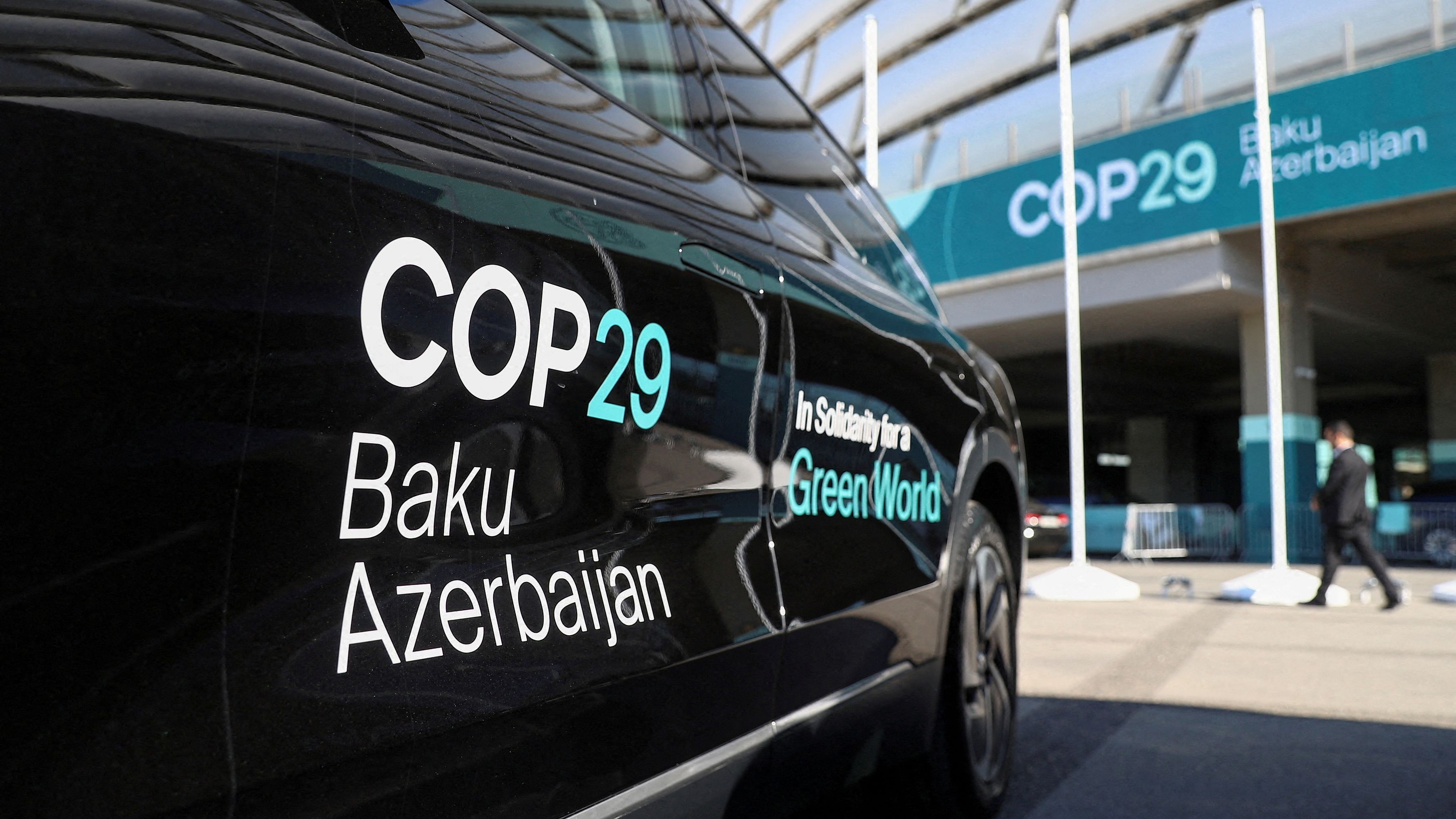
A car is parked at the venue of the United Nations climate change conference, known as COP29, during a media tour ahead of the summit beginning in Baku, Azerbaijan November 8, 2024.
Credit: Reuters Photo
Heading into this month’s United Nations-sponsored climate negotiations, the world is contending with rising climate chaos and declining democracy.
It won’t be lost on any of the attendees in Baku, the Azerbaijani capital, that the talks are being hosted by an autocratic government whose economy relies almost entirely on fossil fuels, the primary driver of climate change.
How could such a country become the host?
As with so much at the United Nations, which is essentially a globe-spanning bureaucracy, the decision came down to protocol. And that protocol, because of particular weaknesses within it, was easily manipulated by Russia, which is itself an autocratic petrostate.
By tradition, the UN climate summit is supposed to take place in a different part of the world each year. The Eastern European group, which includes most former Soviet states, was scheduled to anchor COP29, as the 2024 talks are called, and was required to reach unanimous consensus on which of its members would host.
Over months of rancorous debate within the group, Russia blocked the selection of every country that had condemned its invasion of Ukraine, vetoing potential candidates including Bulgaria, Slovenia and Moldova.
That left Armenia and Azerbaijan as the final contenders on the table. One problem? They had been locked in their own war for decades.
In September 2023, Azerbaijan forcibly reclaimed the Armenian-backed enclave Nagorno-Karabakh, the most recent bout in the long-simmering conflict. Tens of thousands of ethnic Armenians fled an Azerbaijani offensive.
For obvious reasons, they threatened to veto each other’s bids to host COP29.
Russia then brokered a deal that would see Azerbaijan return 32 Armenian prisoners of war and Armenia drop its opposition to Azerbaijan’s COP29 host bid.
With less than a year to prepare (far less time than most hosts get) the Azerbaijanis scrambled to put together a team that could engineer some of the world’s most consequential diplomatic juggling.
Mukhtar Babayev, the country’s ecology minister and a former executive at the state oil company, was put in charge of the talks. He scarcely anticipated filling such a high-stakes role. “We are not famous as a green-transition ideas developer,” he said in an interview in July. Nearly all of Azerbaijan’s exports are oil and gas.
Their production takes place in plain view of the COP29 venue, a sports stadium on the outskirts of Baku. The city is home to between 2 million and 3 million people, and its skyline has been remade with oil money. That has allowed the relatively small city to put on large, flashy events like this one; each year it hosts a Formula One Grand Prix that transforms its downtown city streets into a racetrack.
Near the stadium, creaking rigs excrete pools of stagnant oil. Day and night, a refinery less than 1 mile away burns off methane, one of the most potent greenhouse gases.
Just offshore in the Caspian Sea are scores of drilling platforms.
Much of those fossil fuels flow west toward Europe through pipelines. Even as Europe in recent years barred its banks from financing fossil fuels, it has gobbled up Azerbaijani gas and now hopes others will fund the expansion of the pipelines.
“While Azerbaijan became this year’s host for unusual reasons,” said David Waskow, a climate expert at the World Resources Institute, “being there should once again focus attention on the need to tackle the fossil fuels at the heart of the climate crisis.”